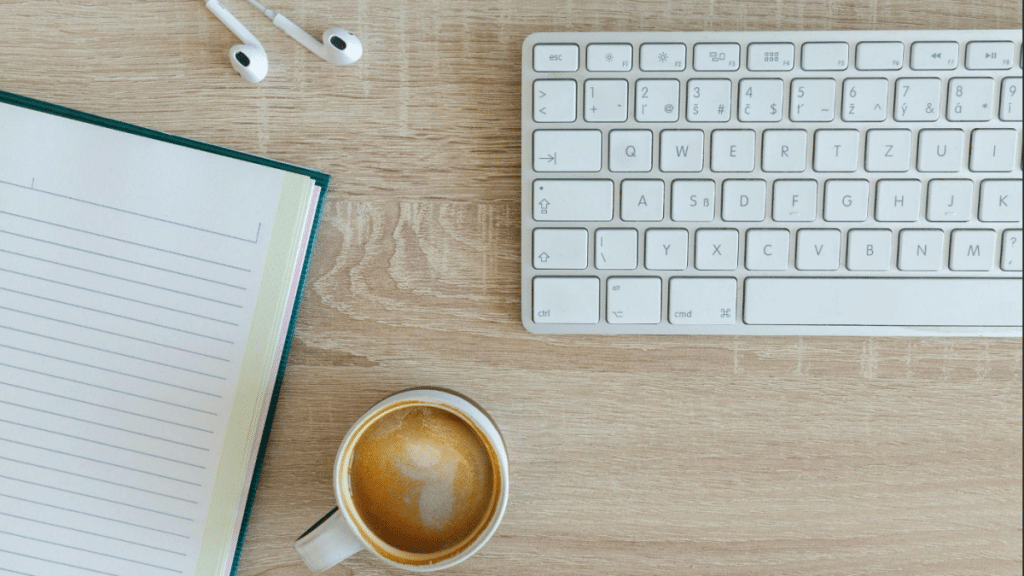In the quest for academic excellence, studying hours do not always equate to the grades received. Many students are drowning in a sea of textbooks and notes, struggling to keep their heads above water. Balancing a heavy workload while maintaining focus and motivation can seem impossible. Thankfully, a smarter approach exists. If you’re ready to learn how to study better for exams and achieve the results you deserve, keep reading.
MyPaperHelp, a platform known for its academic writing and research assistance, offers a solution to time-strapped students. Many students have found it a valuable resource, as seen in the numerous MyPaperHelp reviews. However, even with such resources, effective study habits are crucial. Let’s explore these strategies to help you unlock your full academic potential and show you the best ways to study.
Building a Strong Foundation
Prioritize Self-Care
To find better ways to study, you need to take care of the basics: rest, fuel, and exercise.
Sleep is your brain’s recovery time. Aim for a solid 7-8 hours of quality shut-eye each night so it can recharge and consolidate everything you’ve learned. Just like a healthy diet fuels your body, it also fuels your mind.
And don’t forget to move! Regular exercise isn’t just good for your body; it’s like a power-up for your brain, helping to improve focus and even reduce stress. Make time for activities that help you relax and de-stress, like meditation, yoga, or simply spending time in nature.
Master Active Learning
Don’t just let the words wash over you. Actively engaging with your study material is like conversing with the subject matter. It’s proven to unlock better study methods, helping you understand and remember things way better than just passively reading.
Here’s the deal: instead of just reading, summarize the main points in your own words, as if you were explaining them to a friend later. Don’t be a passive listener in class or during your study sessions either. Ask questions like you’re genuinely curious about the topic.
If something’s unclear, clarify it. Finally, ditch the cramming! Instead, review the material in chunks over time. Think of it as revisiting a favorite coffee shop—each time you go back, the place becomes more familiar.
Organize Your Study Space
Your study environment can make or break your focus and, ultimately, your success in finding the best ways to study. Think of it as your learning sanctuary: a place where your mind can wander freely through the material without distractions. Start by decluttering your space. A clean and organized desk or table helps clear your head and allows you to concentrate on the task.
Lighting is also key. A dimly lit room can strain your eyes and make you feel drowsy, while a brightly lit space can help you stay alert and awake. Natural light is ideal, but if that’s not an option, ensure you have a good lamp that illuminates your study area well.
Next, tackle those pesky distractions. Our digital world is full of them, from social media notifications to email alerts. Silence your phone, close unnecessary tabs on your computer, and consider finding a quiet corner of the library or your home where you won’t be interrupted.
If noise is unavoidable, noise-canceling headphones can be a game-changer. Note-taking apps, online calendars, and project management tools can help you keep track of your assignments, deadlines, and study materials, making your academic life much easier to manage.
Power Up Your Study Sessions
Create a Personalized Study Schedule
A well-crafted schedule is your secret weapon against procrastination and wasted time. It’s like having a personal assistant for your studies, guiding you through the day and ensuring you’re making the most of every minute to study better.
Start by figuring out when you’re at your mental peak – when you feel most focused and energized. Tackle those tougher subjects during these golden hours. Instead of staring down a massive project, break it into smaller, bite-sized tasks. This makes the workload less intimidating and helps you track your progress. And don’t forget to schedule breaks. Your brain needs time to recharge. Step away, move around, and permit yourself to relax for a bit.
The Power of Active Recall
Active recall is like a mental workout for your brain, and it is one of the most effective ways to study. It’s about pulling information from your memory banks without peeking at your notes. The more you do it, the stronger those neural connections become, and the easier it is to remember what you’ve learned.
Here are a few active recall exercises to try: put your knowledge to the test with some good old-fashioned flashcards. Write questions or key terms on one side and the answers on the other. Quiz yourself and see how much you remember.
This will help you pinpoint areas where you need a little more practice. Finally, one of the best ways to solidify your understanding is to try explaining the concepts you’ve learned to someone else (even if it’s just your cat). Putting things in your own words and sharing your knowledge with others reinforces the information in your mind.

The MyPaperHelp Timesaver
Feeling overwhelmed by assignments and deadlines? When your study method needs a boost, and you’re struggling to keep up, MyPaperHelp could be the academic help you need. Their writing service is like having a trusted sidekick in your corner, ready to help you tackle those daunting tasks.
Don’t just take our word for it – check out the countless top review article writing service from students who have experienced firsthand how MyPaperHelp can free up your time and boost your grades. They’ve been praised for their expertise, reliability, and ability to deliver quality work, so you can breathe a sigh of relief knowing your academic success is in good hands.
Optimize Your Exam Performance
Beat Test Anxiety
Test anxiety can feel like a tidal wave of dread washing over you right before the big exam. Your heart pounds, your palms sweat, and your mind goes blank. It’s a common experience, but don’t despair.
There are proven study methods to help you conquer those pre-test jitters and ace your exams. The key is preparation. Knowing the material inside and out is like having a secret weapon in your back pocket – confidence.
But don’t stop there. Learn relaxation techniques like deep breathing, visualization, or progressive muscle relaxation to calm your nerves.
Master Exam Technique
Understanding the lay of the land is crucial to study better for exams. Familiarize yourself with the format and structure of your exams. Is it multiple-choice, essay, or a mix? Knowing what to expect can help you tailor your study methods and approach.
During the exam, time management is key. Before you dive in, quickly allocate time for each question or section. For multiple-choice questions, eliminate any obviously wrong answers and look for clues in the question stem. If you’re facing an essay, take a few minutes to plan your response before you start writing.
Review and Reflect
Don’t just toss that exam aside once it’s over. Use it as a learning experience. Review your performance for valuable tips on how to study better for exams. Look at what you aced and where you stumbled.
This will help you understand your strengths and weaknesses. Also, think back on your study strategies. What worked? What didn’t? By analyzing your approach, you can fine-tune your methods and become an even better learner for the next challenge.
Conclusion
Academic triumph doesn’t have to come at the cost of your well-being. It’s about working smarter, not harder, and these ways to study effectively are your blueprint for doing just that.
By embracing these techniques, you’ll transform the way you learn, become a master of time management, and unleash your true potential. The knowledge and skills you acquire will empower you for years to come.
